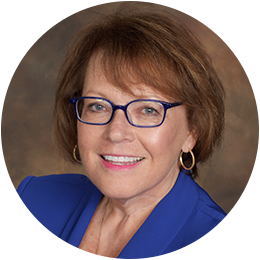
The National Credentialing Forum was held in San Diego on February 1-2, 2018 and representatives of national organizations from all over the USA were there. The weather in San Diego was pretty awesome and since a lot of representatives to NCF came from cold weather, they really appreciated the 70-80’s weather. NCF includes representatives from the following organizations: American Association Nurse Practitioners, American Board of Medical Specialties, American Health Lawyer’s Association, American Medical Association, American Osteopathic Association, Council for Affordable Quality Healthcare, Inc (CAQH), Det Norske Veritas (DNV), Educational Commission for Foreign Medical Graduates (ECFMG), Federation of State Medical Boards, Healthcare Facilities Accreditation Program, National Committee for Quality Assurance (NCQA), National Association Medical Staff Services (NAMSS), National Practitioner Data Bank (NPDB), and the Joint Commission. Also attending were companies representing software and other products used in the credentialing industry as well as representatives of health systems and healthcare consultants that work in the credentialing and privileging industry. It was a great meeting with terrific updates and good speakers.
There were many very informative sessions and I’ll highlight just a few.
The first was “Evolution in Competence Assessment Programs to Meet Emerging Trends in Licensure and Credentialing” with Elizabeth J. Korinek, MPH, CEO, CPEP (Center for Personalized Education for Physicians) and David E.J. Bazzo, MD, Director, PACE (Physician Assessment and Clinical Education Program). The speakers discussed the issues of physicians (and other practitioners) who return to medicine after a gap in practice and how competency can be assessed (and appropriate training provided) when they want to resume clinical practice as well as how organizations (such as hospitals) use CPEP and PACE when they identify potential competency issues as a result of internal monitoring/evaluation programs. The bottom line is that these organizations (as well as others) are focused on helping physicians attain the competency they need to practice safely. There is a “Coalition for Physician Enhancement” that you can read more about on the Federation of State Medical Board website. Find out more about this coalition as well as see a list of programs that are involved in physician assessment and remedial education programs.
Michael Dugan, MBA, CIO, Federation of State Medical Boards talked about credentialing portability and the blockchain initiative. I can’t assert that I totally understand blockchain – but it is important that we stay tuned since credentialing portability is becoming increasingly important with all of the initiatives going on to reduce duplication of collecting credentials. NAMSS has a paper on this subject (from 2017) that provides a very good summary if you are interested in learning more.
The view from the accrediting organizations (NCQA, The Joint Commission, HFAP and DNV) was lively and informative. Andrew Bland, MD from The Joint Commission had been in his job with TJC for less than 30 days, but was very informative – and engaging. I always look forward to this session because it is helpful to understand new initiatives that will be facing healthcare organizations. Most of the discussion during this period related to the use of performance information (FPPE and OPPE) and the problems that organizations are having in meeting the standards for actually using performance information to make privileging decisions.
There were multiple discussions related to the issues that healthcare organizations face in providing accurate provider directory data to payers (including CMS). One of these sessions was led by Sorin Davis, Managing Director of Industry Relations for CAQH. Sorin is always a compelling speaker with timely information that elicits lots of discussion. CMS recently issued the second report on accuracy of provider directories – and many were not surprised to find that the results were not good. The review found that 52.20% of the provider directory locations listed had at least one inaccuracy. Types of inaccuracies included:
- The provider was not at the location listed
- The phone number was incorrect
- The provider was not accepting new patients when the directory indicated they were
If you would like to access the report, you can do so here.
Finally – in the interest of time, I’ll conclude with the report from the American Board of Medical Specialties presented by Jennifer Michael, Chief Information Officer and Chief Business Development Officer. Jennifer spoke about the initiatives being taken by ABMS and the 24 member boards to improve the MOC (Maintenance of Certification) programs – which, as many of you know – have not been warmly received by some physicians. That being said, there are 880,000 physicians who are certified by an ABMS member board and of these, 550,000 are in MOC programs. Stay tuned for new developments in the MOC program.
Thanks to everyone who participated in this year’s NCF meeting. It was awesome and I look forward to seeing you next year.
Thanks for reading. It is great to be in an industry where we are never bored!
